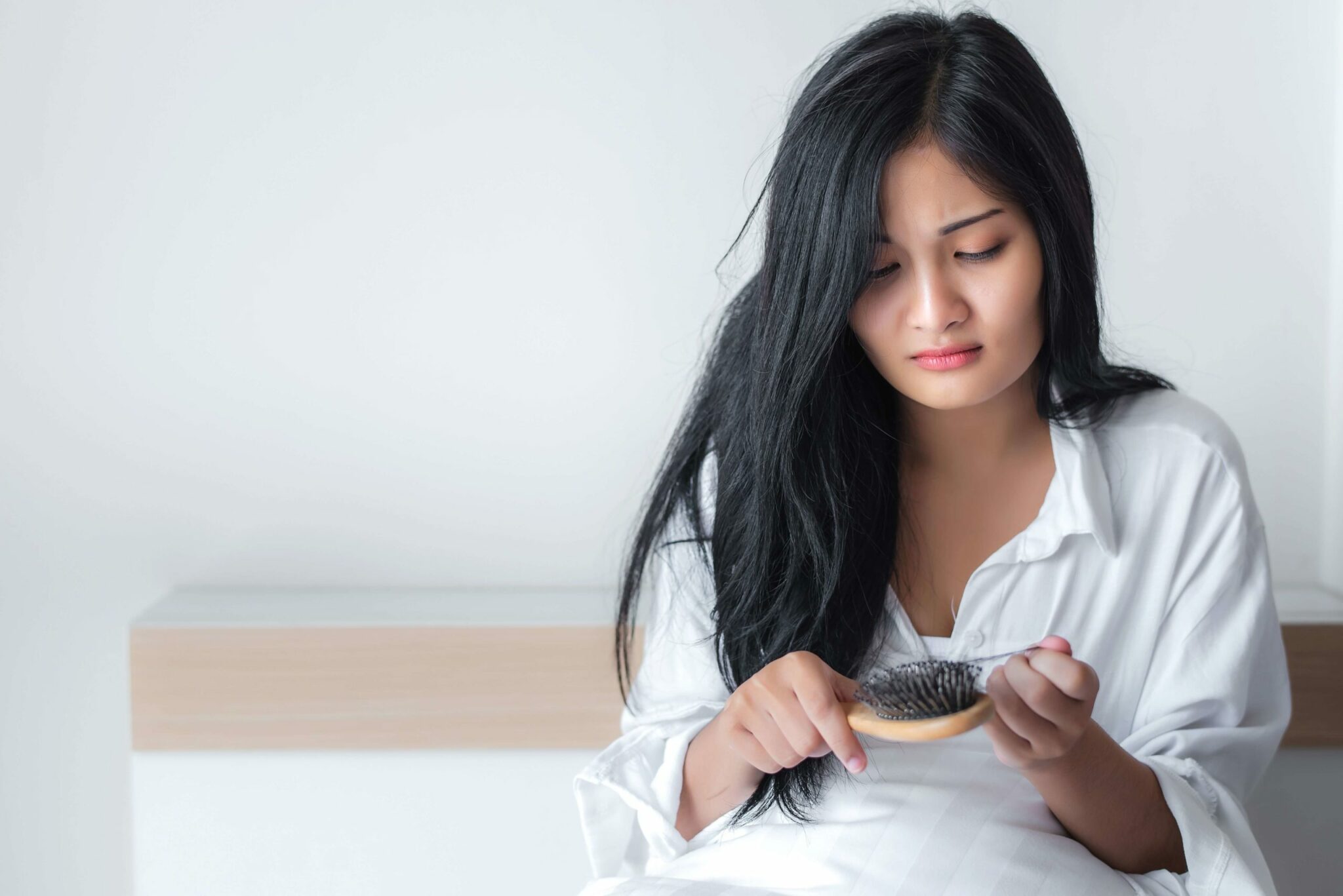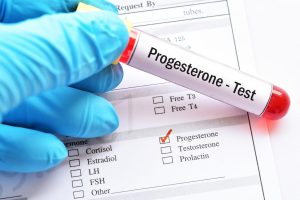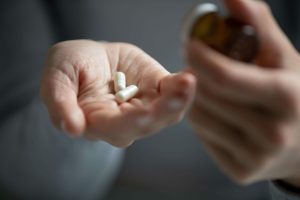Coping With PCOS Hair Loss

Hyperandrogenism (an excess of androgens) is one of the most common symptoms of PCOS, affecting between 60% and 80% of women who have the condition. Androgens are the male sex hormones and, whilst all women need some of these hormones, if levels get too high, certain masculine traits can appear. These include hirsutism (facial hair), acne and alopecia (hair loss). PCOS-induced hair loss normally resembles male-pattern baldness as both are driven by androgens. The hair will usually thin across the front and top of scalp and give the appearance of a receding hairline. This is in contrast to normal female hair loss, which typically occurs with increasing age and is more of a general thinning across the entire scalp.
Managing PCOS hair loss is as much to do with handling the psychological impact as the physical symptoms. Women who experience hair loss can suffer from low self-esteem and dissatisfaction with how they look. It can be an emotionally stressful condition, affecting quality of life and it is important that those with hair loss look after their mental well-being, seeking help as required and speaking to friends and family about how they are feeling.
As with most symptoms of PCOS the best management is to identify and treat the underlying cause of the condition. Primarily a condition of irregular or absent menstrual cycles, restoring ovulation will rectify many of the symptoms of PCOS. Furthermore, endogenous oestrogen and progesterone improve the health of the hair. Regular ovulation means that the levels of these hormones are maintained at the optimum level to exert their beneficial effects.
A major problem is that hair regrowth takes time, so even if the cause of PCOS is established and acted upon, it might be months before any visible improvement is seen. To ensure that the remaining hair is in good condition and new hair is healthy and strong it is important to follow a healthy diet. An iron-rich diet is recommended because hair requires iron for growth. Inflammatory food types (wheat, sugar and dairy) are best avoided because inflammation can cause the hair follicles to become extra sensitive to androgens. As some cases of PCOS are thought to have an inflammatory component, avoiding these foods will also help alleviate some of the other symptoms of the condition. Finally, zinc supplements are recommended; zinc promotes ovulation, blocks androgens and stimulates hair growth. These are all natural approaches for encouraging hair growth. There is little to no evidence that any medication is effective at enhancing hair growth. Finasteride does have some beneficial effects in males, but results with females are negligible, it should also be avoided during pregnancy.
Recent work has suggested that low-level laser therapy might promote hair growth, although this work is in the early stages.
Unfortunately for those affected, even after making all the right lifestyle changes, time and patience are paramount to making a full recovery.
Sources:
- Friedman, S, and P Schnoor. “Novel Approach to Treating Androgenetic Alopecia in Females With Photobiomodulation (Low-Level Laser Therapy).” Dermatologic Surgery, vol. 43, no. 6, June 2017, pp. 856–867., doi:10.1097/DSS.0000000000001114.
- van Zuuren, E J, et al. “Interventions for Female Pattern Hair Loss.” The Cochrane Database of Systematic Reviews , no. 5, 26 May 2016, p. CD007628., doi:10.1002/14651858.CD007628.pub4.
- Briden, L. “9 Things to Know About Female Hair Loss.” Lara Briden – The Period Revolutionary, 27 Jan. 2015, www.larabriden.com/things-to-know-about-female-hair-loss/.










